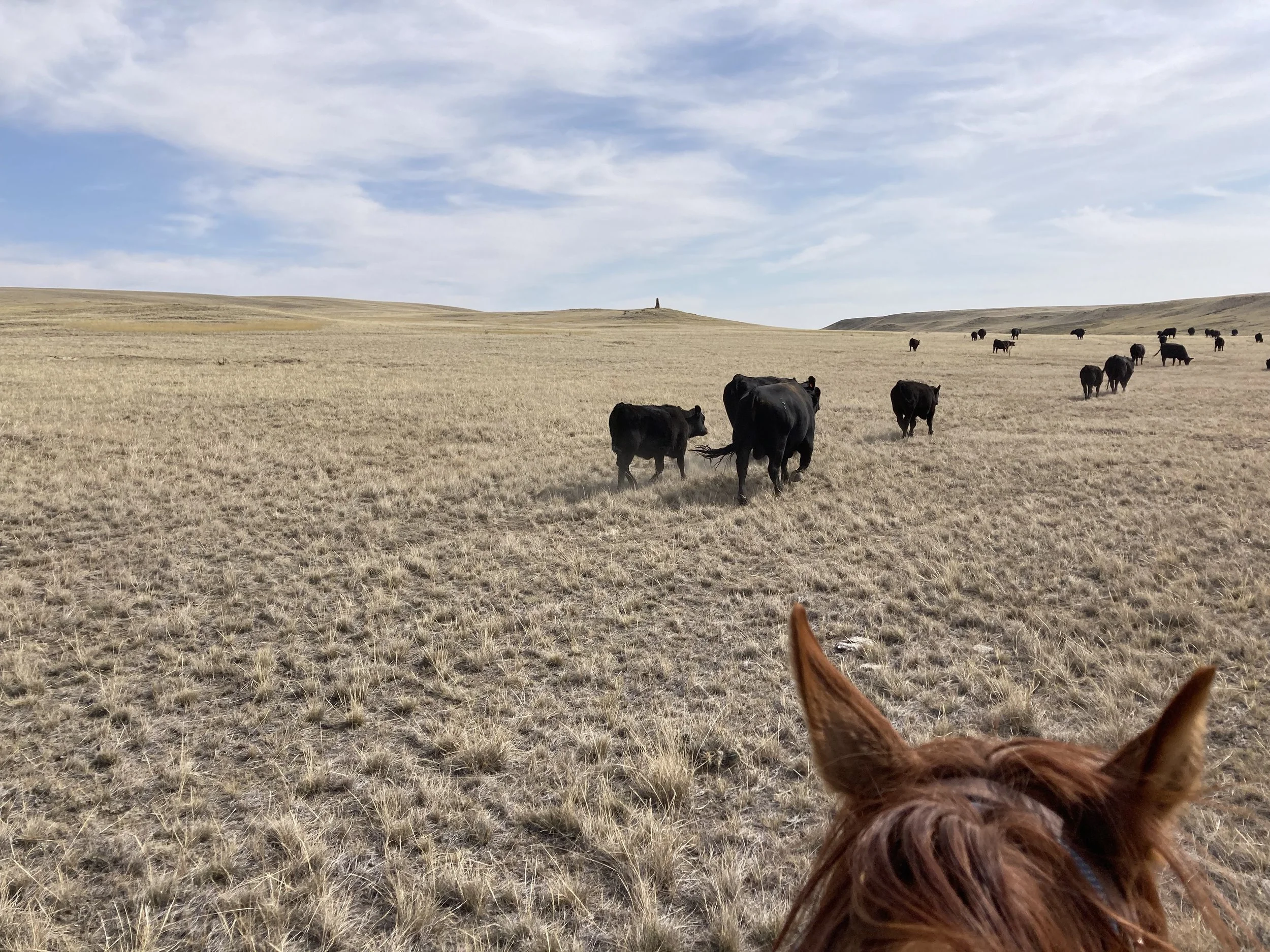Business of Education
I was invited to talk to educators about how business principles for success apply to them.
At first, I thought asking a rancher and writer to talk about education is quite a stretch.
Then I decided business principles for success apply to all realms of life – business, education, personal relationships and communities.
The goal, after all, is to develop healthy adults, communities and businesses -- physically, emotionally and intellectually.
So I saddled up to think about commonalities among for-profit, financially-motivated businesses and non-profit, service-oriented schools.
After all, I think about things best either in the saddle or in front of broken barbed wire.
As I rode along, I thought of seven principles:
1) Remember who the customer is. My customer is the person who eats, not the feedlot, processor or grocery store. A school’s customer is the student, not the teacher, administrator or parent.
2) People need skin in the game. Each customer needs to know how my product improves his own life. Each student needs to know how her education will improve her own life. Skin in the game is personal and individual, not generic.
3) Own your responsibility. Instead of blaming others for problems, control what you can. Overcome obstacles by wielding that control. I don’t control the rain -- or lack thereof -- but I control my reaction to it.
4) Treat people the way you want to be treated. Be fair, be direct, be compassionate. Offer opportunities to grow.
A couple of years ago, I bought a horse that would not buck me off. Since then, I have been frustrated by her lack of willingness to turn when I queue her with my leg. I use harsh words and pull her rein to get her to move.
Until the other day.
I finally realized that she has never been taught that pressure from my leg means I’m asking her to turn.
I don’t need to be frustrated. I need to train her.
Students need to be trained, too, not punished for not understanding.
A corollary to this is to treat yourself the way you want to be treated, too.
Practice gratitude.
Recognizing good things isn’t some cliched, cheesy advice that should be painted on the kitchen wall. This practice changes the internal voice that dictates our world view.
Many of us experience imposter syndrome – that inner voice that says we really are not as good as people think and they are going to find out we are faking it.
Worse, they will find out soon.
We can change that inner voice.
So change it.
5) Lead by example.
Actions speak louder than words and people watch more than they listen. When your words match your actions, you have integrity.
Integrity earns trust.
Trust is fundamental to success.
6) Build an effective team.
I need experts to process my beef and finance my projects. I also need good horses.
Educational administrators need expert teachers to serve students. They also need parents.
7) Know how you measure success.
My measurement of success is two-fold: My land and livestock are healthy and my customers are satisfied.
In education, success is not measured with test results, but with healthy students who move into productive adulthood.
As I rode up to the hitchrail, I thought about money as a measure of success.
Profit or non-profit.
Service or product.
Money is a tool, not the endgame.
We trade money for authority and power, often losing sight of the customer and the goal.
Real power comes from developing healthy land, communities and people.
I pressed my leg into my horse.
She hesitated, then turned.
